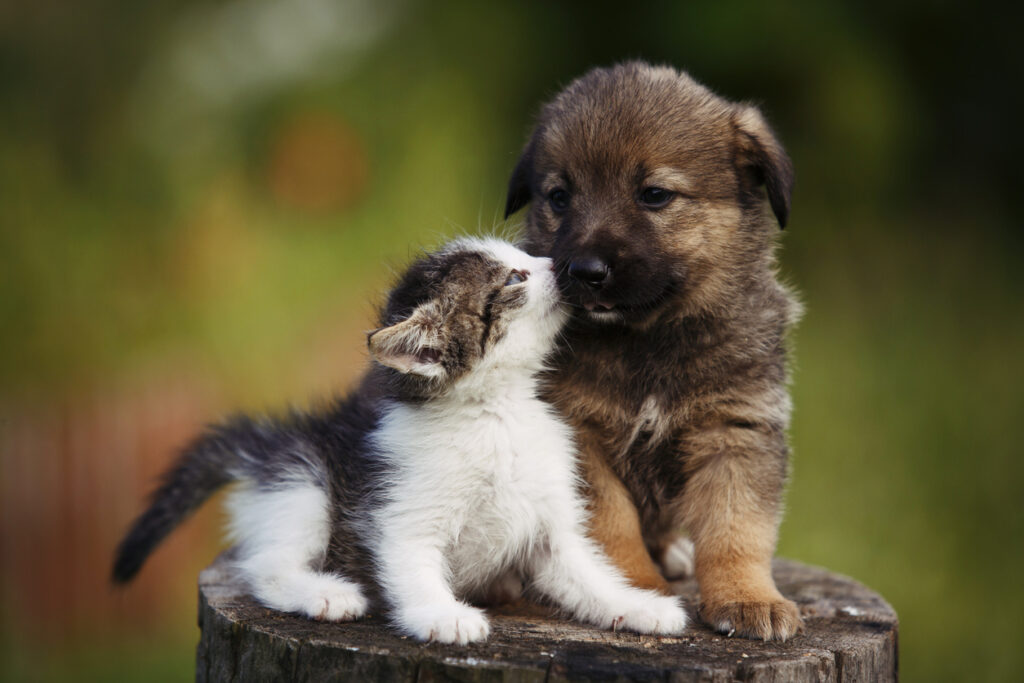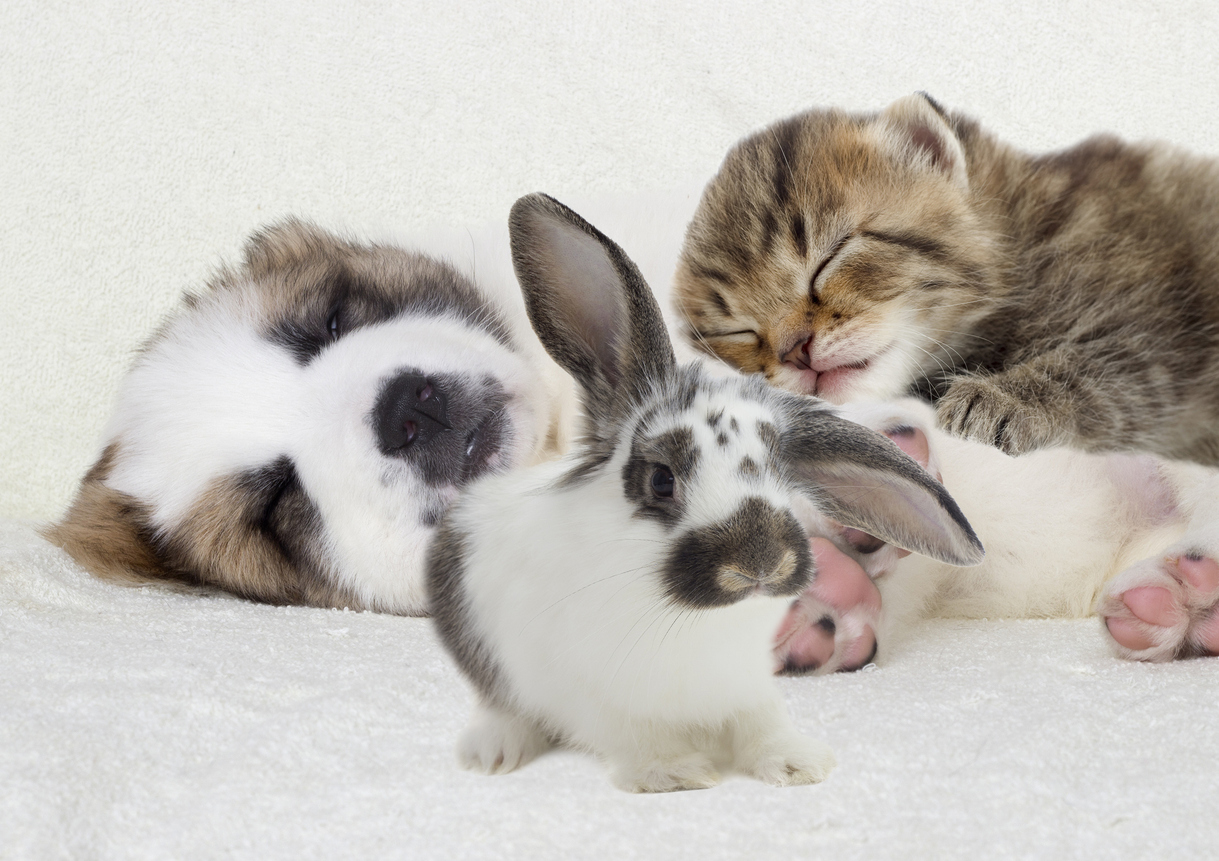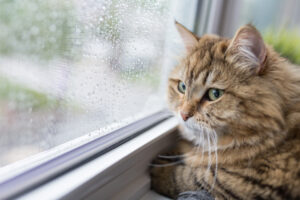Ensuring your beloved pets—whether dogs, cats, or exotic companions—receive proper pet vaccinations is one of the most essential steps in safeguarding their health. Our region presents its own risks, making it crucial to consult with us to tailor a vaccination plan that best protects your pets. By understanding the importance and schedule of pet vaccinations, you can ensure a healthier and happier life for all your pets.
The Importance of Vaccinations for Dogs, Cats, and Exotic Pets
Vaccines help your animal’s immune system to fight disease by stimulating the production of antibodies. Antibodies identify and destroy disease-causing organisms. Vaccines prevent diseases that can be passed between animals and from animals to people. Diseases prevalent in wildlife, such as rabies and distemper, can infect unvaccinated animals. By vaccinating your pets, you can avoid costly treatments for preventable diseases and save lives.
Understanding the Rabies Control Act in Texas
As a responsible pet owner in Texas, it’s crucial to understand the legal requirements for keeping your furry friends safe from rabies. There is no cure for a pet infected with rabies. It is a deadly disease caused by a virus that attacks the nervous system. Once the outward signs of the disease appear, rabies is nearly always fatal. The Rabies Control Act, outlined in Chapter 826 of the Texas Health and Safety Code, establishes guidelines to control and prevent the spread of rabies among animals and humans.
1. Mandatory Vaccinations
- All dogs and cats must be vaccinated against rabies by the age of four months.
- Vaccinations must be administered by a licensed veterinarian to ensure efficacy and proper documentation.
2. Booster Shots
- Pets require booster shots at regular intervals to maintain immunity. The frequency of these boosters is determined by the type of vaccine used and should follow the veterinarian’s recommendations.
3. Rabies Tags and Certificates:
- After vaccination, pet owners receive a rabies vaccination certificate and a tag for their pet’s collar.
- These serve as proof of vaccination and help authorities identify vaccinated animals.
The Difference Between Core Vaccines and Non-Core Vaccines
Core Vaccines
Core vaccines are vital for animals based on exposure risk, disease severity, or transmissibility to humans. They protect dogs, cats, and some exotic pets from common diseases in their area. Below are the core vaccines for dogs, cats, and common exotic pets:
Dogs
- Rabies
- Canine distemper (includes Canine Distemper, Adenovirus/Hepatitis, Parainfluenza and Parvovirus)
- Leptospira
Cats
- Rabies
- Feline panleukopenia (FPV)
- Feline viral rhinotracheitis (FRV)
- Feline calicivirus infection (FCV)
Non-core (Elective) Vaccines
Non-core vaccinations are for individual animals with unique needs. Dr. Lowenstein will consider your animal’s risk of various preventable diseases to customize a vaccination program for optimal protection throughout their life. She will ask you questions about your animal’s lifestyle, including any expected travel to other geographical locations or possible contact with other animals or wildlife since these factors can impact your animal’s risk of exposure to certain diseases.
Examples of Non-Core Vaccines for Dogs in Texas:
- Bordetella (kennel cough)
- Influenza
Examples of Non-Core Vaccines for Cats in Texas:
- Feline leukemia virus (FeLV)
- Feline immunodeficiency virus (FIV)
- Chlamydia felis bacterium.
Exotic Pet Vaccinations

Vaccinations for exotic pets are an essential aspect of responsible pet ownership, helping to safeguard these unique animals from various preventable diseases. The vaccination needs of exotic pets can vary widely based on species, age, health status, and geographic location. Dr. Lowenstein, an experienced exotic animals’ veterinarian, is here to ensure your exotic pet receives the necessary immunizations to stay healthy and thrive in their environment.
Vaccinations for Young Animals

As discussed in our blog, Vaccinations, young animals are highly susceptible to infectious diseases because their immune system is not yet fully mature. If they are nursing, they receive protection through antibodies in their mother’s milk, but this protection is short-lasting, and there may be gaps as the milk antibodies decrease and their immune system is still maturing. Therefore, it is critical to start young pets on their vaccinations and keep to their vaccine schedules. Kitten and puppy immunizations typically start between 6-8 weeks of age.
The Risks of Skipping Pet Vaccinations: Health, Legal, and Social Risks
Failing to keep your pet’s vaccinations up to date can lead to several serious consequences, including:
1. Increased Risk of Disease: Without regular vaccinations, pets are more susceptible to contracting preventable diseases such as rabies, distemper, parvovirus, and feline leukemia. These diseases can be severe and fatal.
2. Higher Veterinary Costs: Treating a disease that could have been prevented by a vaccine often results in higher veterinary bills due to the need for more intensive care and treatment.
3. Public Health Risk: Some diseases, like rabies, can be transmitted from pets to humans. Keeping pets vaccinated helps protect public health and prevent outbreaks.
4. Legal Consequences: Failure to comply with local and state laws can result in fines, penalties, or even the forced removal of the pet.
5. Travel Restrictions: Unvaccinated pets may face restrictions or be denied entry when traveling across state or international borders. Many boarding facilities and pet services also require up-to-date vaccination records.
6. Reduced Socialization Opportunities: Many pet daycares, parks, and grooming facilities require proof of vaccinations to ensure the safety of all animals in their care. Without up-to-date vaccinations, pets may miss out on socialization and enrichment activities.
7. Community Spread of Disease: Unvaccinated pets can become carriers of diseases, posing a risk to other animals they come into contact with, including pets in the neighborhood or at animal shelters.
Conclusion: Ensuring Your Pet’s Health with Vaccinations
In conclusion, ensuring that your dogs, cats, and exotic pets receive proper vaccinations is crucial to keeping them healthy and protected from preventable diseases. By staying informed about the importance and schedule of vaccinations, you can provide your pets with the best possible care and contribute to our community’s overall health and safety. At Braescroft Animal Clinic, we are dedicated to helping you create a tailored vaccination plan for each of your beloved pets. Schedule an appointment today to discuss your pet’s specific needs and ensure they receive the essential vaccinations on schedule to thrive in our unique region. Together, we can safeguard the health and happiness of your furry, feathered, and scaled companions.
Your Caring Team at
Braescroft Animal Clinic




